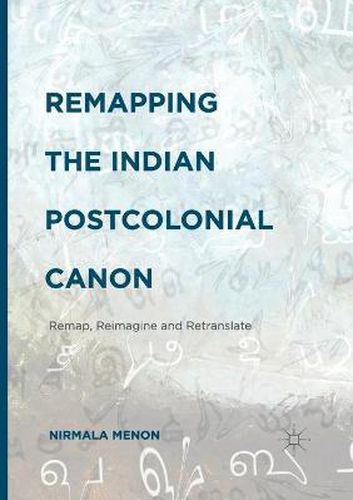Readings Newsletter
Become a Readings Member to make your shopping experience even easier.
Sign in or sign up for free!
You’re not far away from qualifying for FREE standard shipping within Australia
You’ve qualified for FREE standard shipping within Australia
The cart is loading…






This title is printed to order. This book may have been self-published. If so, we cannot guarantee the quality of the content. In the main most books will have gone through the editing process however some may not. We therefore suggest that you be aware of this before ordering this book. If in doubt check either the author or publisher’s details as we are unable to accept any returns unless they are faulty. Please contact us if you have any questions.
This book critically examines the postcolonial canon, questioning both the disproportionate attention to texts written in English and their overuse in attempts to understand the postcolonial condition. The author addresses the non-representation of Indian literature in theory, and the inadequacy of generalizing postcolonial experiences and subjectivities based on literature produced in one language (English). It argues that, while postcolonial scholarship has successfully challenged Eurocentrism, it is now time to extend the dimensions beyond Anglophone and Francophone literatures to include literatures in other languages such as Hindi, Telugu, Tamil, Tagalog, and Swahili.
$9.00 standard shipping within Australia
FREE standard shipping within Australia for orders over $100.00
Express & International shipping calculated at checkout
This title is printed to order. This book may have been self-published. If so, we cannot guarantee the quality of the content. In the main most books will have gone through the editing process however some may not. We therefore suggest that you be aware of this before ordering this book. If in doubt check either the author or publisher’s details as we are unable to accept any returns unless they are faulty. Please contact us if you have any questions.
This book critically examines the postcolonial canon, questioning both the disproportionate attention to texts written in English and their overuse in attempts to understand the postcolonial condition. The author addresses the non-representation of Indian literature in theory, and the inadequacy of generalizing postcolonial experiences and subjectivities based on literature produced in one language (English). It argues that, while postcolonial scholarship has successfully challenged Eurocentrism, it is now time to extend the dimensions beyond Anglophone and Francophone literatures to include literatures in other languages such as Hindi, Telugu, Tamil, Tagalog, and Swahili.